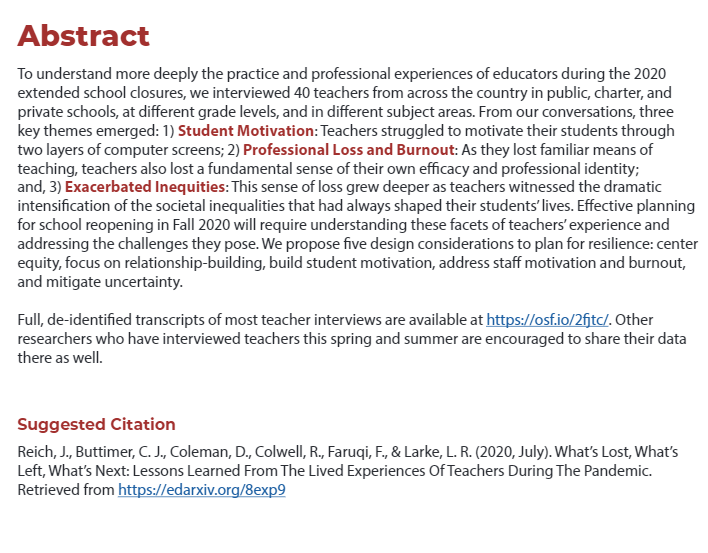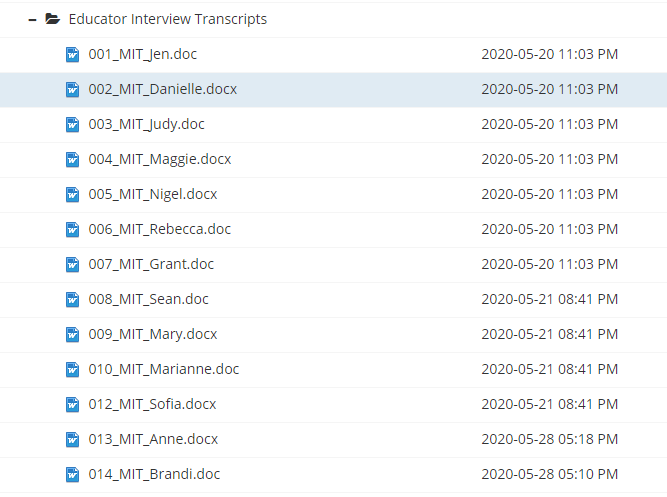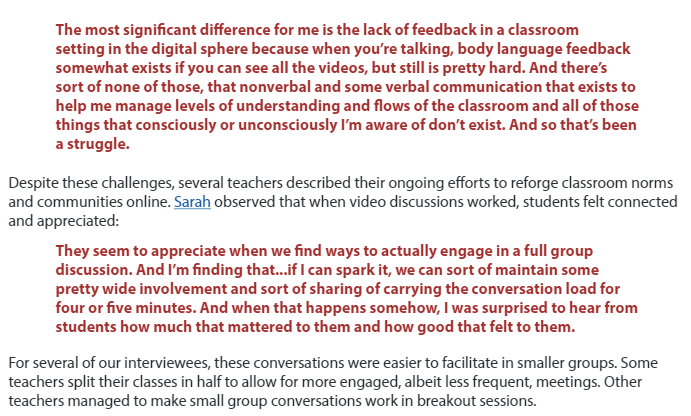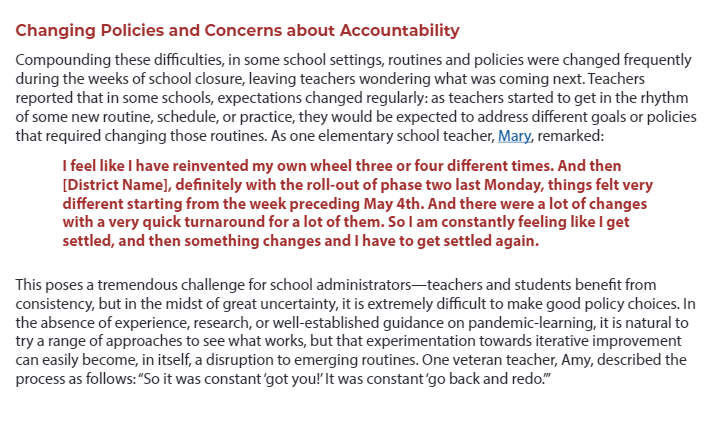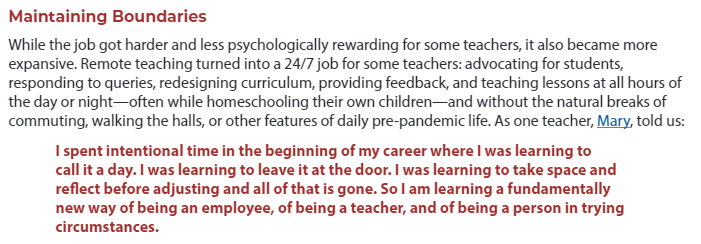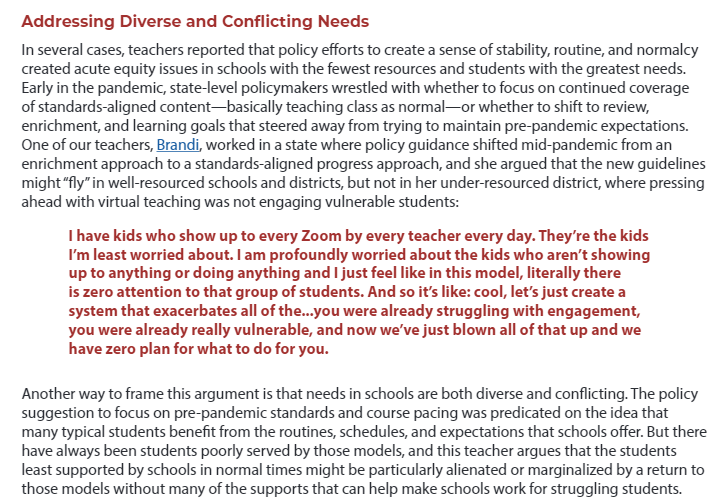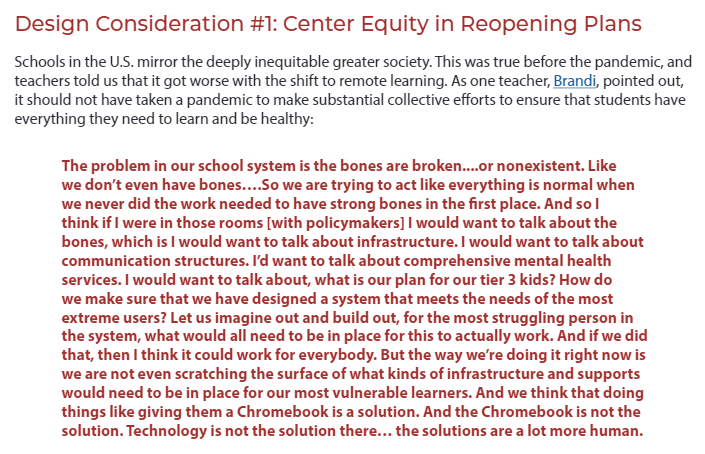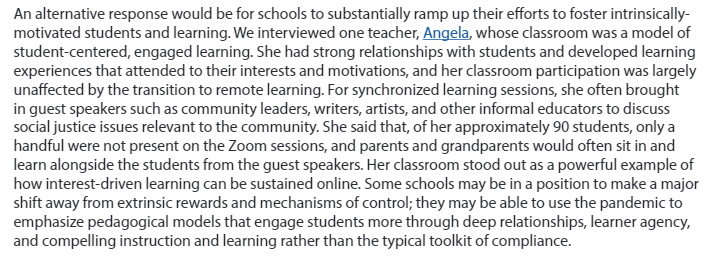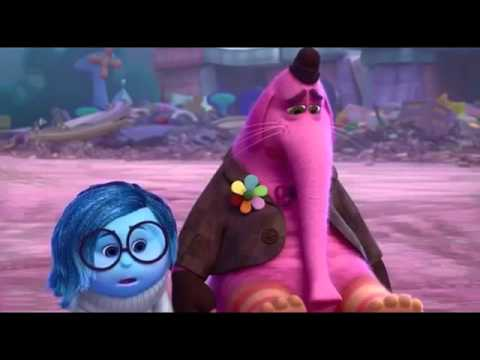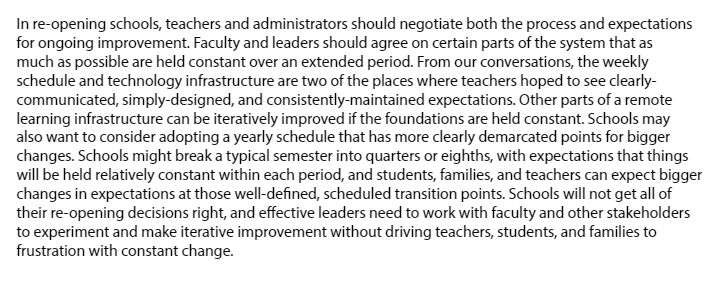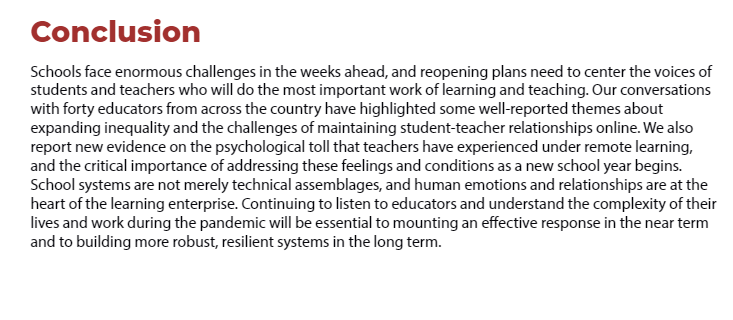We interviewed 40 teachers across the country in April and May understand their experiences of remote teaching. New Report: What& #39;s Lost, What& #39;s Left, What& #39;s Next: Lessons Learned from the Lived Experiences of Teachers during the 2020 Pandemic: https://edarxiv.org/8exp9/ .">https://edarxiv.org/8exp9/&qu... 1/20
We heard three themes over and over. First, supporting student motivation at a distance is HARD. Second, teachers feel a deep sense of professional loss; like a surgeon injuring her fingers. Third, the intensification of social inequalities is hard to bear. 2/20
Nearly all of our participants agreed to let us post their de-identified transcripts online, so you can read our full conversations. If there are quotations in the report that you find interesting, you can go and read the whole content at https://osf.io/2fjtc/ .">https://osf.io/2fjtc/&qu... 3/20
Great teachers constantly incorporate sensory data about how students are doing, with their eyes, their concentration, their mood. So much of that information is lost online. Sometimes teachers made the connections work online, but it& #39;s hard. 4/20
As my local elementary principal said, "We& #39;re learning that there are 500 things we do every day in class, verbal and non-verbal, to make classrooms work. And none of them work on Zoom." It& #39;s like learning a whole new profession. 5/20
As teaching became harder, educators used the language of grief to describe their feelings. "I was mourning my plans" "It was like shouting into the void." As a professional, the work often felt terrible. 6/20
Teacher grief and professional loss is not a trivial consideration. The psychological rewards of teaching are an essential part of "teacher compensation." How will we support teachers to do the extra work of the pandemic, when the work is less satisfying? 7/20
Two other substantial teacher challenges emerged: rapid policy changes during the pandemic make it hard to plan consistently. 8/20
And a job that had natural boundaries--the end of the school day, the commute home--became all consuming 9/20
These feelings of professional loss and grief were compounded by the expanding inequities caused by the pandemic. Teachers watched as their most vulnerable students suffered most. 10/20
As my colleague Peter Senge says, people think of leadership as a "neck-up" job, but it& #39;s not. The feelings and emotions that teachers bring to their work are inextricably tied to teacher learning. You can& #39;t feel bad and teach well. School leaders will have to address this. 11/20
From our investigation of teacher experiences we have five suggestions for schools as they reopen: center equity, focus on relationship-building, address student motivation, address staff motivation and burnout, and mitigate uncertainty. 12/20
First, center equity in reopening plans. When our systems fail our most vulnerable students, that both betrays the public mission of schools and is demotivating for many teachers. Reopening plans have to address inequalities. 13/20
Second, when schools reopen, focus on relationship-building. Relationships are foundational to student motivation... Schools that are starting remotely will have have special challenges in building new T/S relations online, and they will have to invest time in that work 14/20
Third, addressing student motivation will be critical & challenging. Many schools relaxed grading expectations during closures for equity issues, which reduced student motivations. Many schools are planning on bringing these expectations back, but these equity issues remain 15/20
While schools may need to bring back grades and extrinsic motivations, we find the alternative approach to motivation--boosting student& #39;s intrinsic motivation to learn through agency, interest, and relations--more promising. 16/20
School leaders will have to address teacher professional loss and burnout. Leaders will need to create space for grief and mourning of what& #39;s lost, in order to make space for tackling the important challenges ahead. c.f. Sadness and Bingbong 17/20
Finally, leaders need to manage for uncertainty. Organize the coming school year into shorter discrete periods. We need "eighths" or marking period or "sprints" instead of quarters or semesters. Plan ahead for specific times for bigger changes. 18/20
Schooling is an inherently human enterprise. It can& #39;t just be safe. It has to *feel safe* for people to have the vulnerability and confidence that teaching and learning require. 19/20
tl;dr listen to teachers. They are concerned about feeling inefficacious, burning out, losing connections with student, and watching society become more inequitable. School leaders that address these issues will have better reopening success than those that don& #39;t. 20/20
Join the report authors on Tuesday, July 28th at 5pm ET to discuss the report, hear about our conversations, and ask questions about what we& #39;ve learned: https://mit.zoom.us/webinar/register/WN_GpPAk_ZHQMS6-lnVVSMdgg">https://mit.zoom.us/webinar/r...

 Read on Twitter
Read on Twitter
